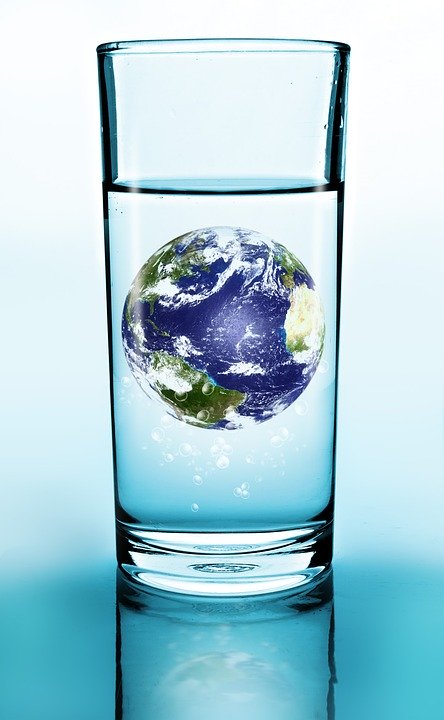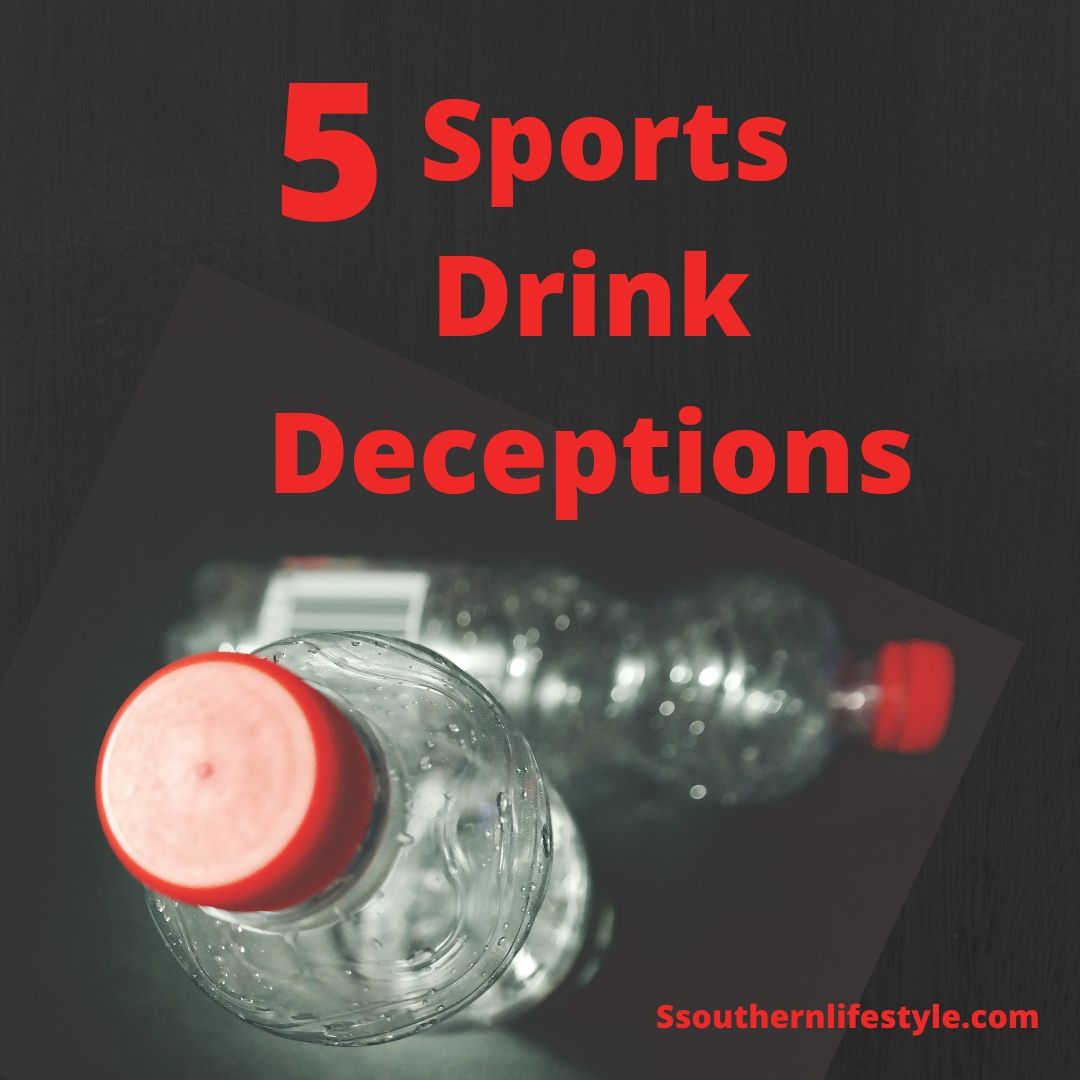It’s a brave new beverage world out there, and consumers are being romanced by a deluge of “healthy” drink solutions promising to keep them rehydrated, energized and performing at a high level. However, in truth, much of what’s being merchandised in this category is far more focused and adept at hype than hydration.
This post contains informational and/or affiliate links. At no additional charge to you and with no purchase necessary, Ssouthernlifestyle may receive a commission from the pictures and/or links that you click on . Thank you for supporting Ssouthernlifestyle!
So, what’s a would-be consumer to do who’s thirsty for a truly viable rehydration, sports or performance-enhancing beverage solution, but doesn’t want to be duped by their drink of choice?
Field expert James Mayo, co-founder of SOS Rehydrate, a company that’s developed a new, cutting-edge and healthy electrolyte replacement rehydration beverage engineered for those with active lifestyles, offers 5 myth-debunking “buyer beware” truths that’ll help shoppers steer clear of ineffective—or even harmful—rehydration and sports beverages in favor of those spurred by sound science.

- Sugar is not an electrolyte. Why pay extra money for excess sugar when what you really need are electrolytes. In truth, only a very small amount of sugar is required to help transport electrolytes and water into the cells as part of the sodium glucose co-transport system. In fact, this system is most effective when it utilizes one molecule of sugar and one molecule of sodium in combination, which helps create the fastest and most effective way to transport water into the cells for hydration. Even water rehydration and other drinks that do actually claim to utilize the sodium glucose co-transport system have been shown to contain excess sugar to enhance taste, apparently discounting the fact that that this added sugar commensurately increases calorie count and actually undermines cellular H2O absorption. For clarity, sugar is a fuel and it’s a proven fact that it is not an electrolyte, so consumers seeking a maximized rehydration beverage should seek those with the minimum amount of sugar to help the body best absorb electrolytes and water. A glut of rehydration beverage brands on the market add excess sugar, don’t optimize the sodium-glucose co-transport system to make the drink sweeter, or both.
- Excess sugar dehydrates and undermines energy. Beyond the above-stated concerns, too much sugar also leeches sodium and water from the body cells, which can cause dehydration. If there is excess sugar in a drink, even one engineered as a rehydration solution, then you can trigger reverse osmosis. The body’s reverse osmosis process occurs when there is an incorrect balance of sugar to sodium. Sodium always follows sugar and water always follows sodium. In a drink that is correctly balanced (utilizing the sodium glucose co-transport system) then the water and electrolytes optimally flow into the cells. In high sugar drinks there is too much sugar for the quantity of sodium and, as such, sodium and then water is actually leeched from the cells and passed out of the body as urine. This can lead to dehydration—the opposite effect for a rehydration beverage one has spent their hard-earned dollars to purchase. Not to be underestimated, dehydration is a physical state that, at any level, can undermine performance and physical outlay by significant percent—and also cause other unpleasant symptoms like headaches and tiredness. Hydration delivered through a correctly calibrated rehydration beverage regulates the bodies’ electrolyte and water balance, allowing it to maintain optimum performance levels and avoid the energy drops associated with energy and sports drinks.
- Zero sugar is a bad thing. Drinks that only contain sodium do not absorb H2O as fast as drinks that contain a small amount of sugar. As mentioned above, the sodium glucose co-transport system relies on a specific ration of one molecule of sugar and one molecule of sodium to transport electrolytes and water effectively into the cells. Drinks that do not contain any sugar then need to rely on collecting glucose (sugar) throughout their journey within the gut. The salt-only drink will eventually get absorbed, but much slower than one that is perfectly balanced. Also, while it’s commendable that that major sports drinks manufacturers are finally attempting to tackle the excess sugar epidemic, but their “zero sugar” marketing strategy is creating other problems amid the sports and rehydration beverage category. Not the least of which is the fact that artificial sweeteners, then needed to make the beverage palatable, can contribute significantly to obesity—even more than plain sugar—coupled with the reality that zero sugar actually reduces the H2O absorption.
- Tablet-based electrolyte drinks deliver sub-optimal results. Tablets dissolve via fizz or other breakdown method, leaving residue on the bottle in which it was inserted. That begs the question: what will it be doing to your body? Tablets are made from powder that has been fused together under pressure, requiring excess ingredients within them to activate the breakdown process when water is added. These added ingredients tend to be fizzy to create effervescence. As such, these tablets can lead to gastrointestinal distress that is directly correlated to the ingredients used in the tablet. So, with these, consumers are imbibing more than just the electrolytes they desire. Plus, users will also drink in some of those extra ingredients that leave a residue on the side of the bottle. Moreover, tablets are often touted as being easily portable but, in reality, they tend to come in packs of 10 that need to be transported altogether rather than individually, per tablet. And, if any get wet while being carried, they all dissolve either partially or completely. In fact, in hot and humid environments these tablets frequently absorb atmospheric moisture and end up in ruin—money wasted.
- Electrolyte drinks often miss the mark. There is a current trend around electrolyte waters. However, if you look at the ingredients, these kinds of beverages contain “trace” elements of said electrolytes. And, they tend to be the kind of electrolytes found naturally in some springs, or that have been added. Trace minerals means that they are barely measurable and, thus, do not provide enough in any quantity to be useful in the body by nutritional supplement standards. It’s also imperative to understand that drinking only water can a body to over-hydrate, flushing out the system and reducing the blood’s sodium concentration to dangerously low levels. This is called hyponatremia that, in extreme cases, can lead to death.
Why settle for drinking excess sugar, or beverages with artificial sweetness and flavors? The fewer and more natural ingredients you put into a drink, and in the correct ratios, the easier it will be for the body to absorb it … and give you the health and performance gains you desire. The same can be said for adding too many ingredients to make it an “all in one” drink. These kinds of beverage are fashionable and highly marketable, but simply put: your body will not absorb all of the ingredients. So, ultimately, you’re getting far less than you paid for. Having a drink that is wholly scientifically engineered for just one specific purpose, like optimizing cellular hydration, will have the best chance of being absorbed and rendering the myriad of benefits related thereto.
Beyond the body, food and beverage purveyors also need to do more to alleviate environmental concerns around the amount of beverage-born trash being disposed of that’s not only filling up our landfills, but also affecting the life and ecosystems in our oceans. Every plastic bottle that we use and regularly throw away takes over 450 years to break down. So, beverage and other manufacturers should not only be focused on “good for you” ingredients, but also eliminating single use plastics from the world through modern options like compostable or non-plastic packaging. Considering that some companies donate money to “green” causes but still manufacture and package in a way that exacerbates environmental issues is disingenuous, and just throwing money at the problem will only go so far. Industry collectively needs to take action and demand that manufacturers of food, beverage and all other products lead the change and do their true part to eliminate needlessly harmful waste.
To this, Mayo wholeheartedly agrees. As an environmental pioneer in the rehydration beverage category, Mayo says that SOS Rehydrate is committed to packaging that’s fully compostable across all retail channels by 2021. Come spring 2020 the company’s eCommerce Web site at www.SOSRehydrate.com as well as select retailers will stock SOS’s compostable stick packs.
Sources:
https://www.mashed.com/135553/the-untold-truth-of-gatorade/
https://www.sciencedirect.com/science/article/pii/B9780323462150000203
https://sosrehydrate.com/pages/independent-trial
For more information you can visit www.SOSRehydrate.com. Article and image provided by Anne Gold.
You can leave any comments or questions in the box below. Don’t forget to stop by the home page to sign up for a weekly email from Ssouthernlifestyle and as always have a blessed day!




